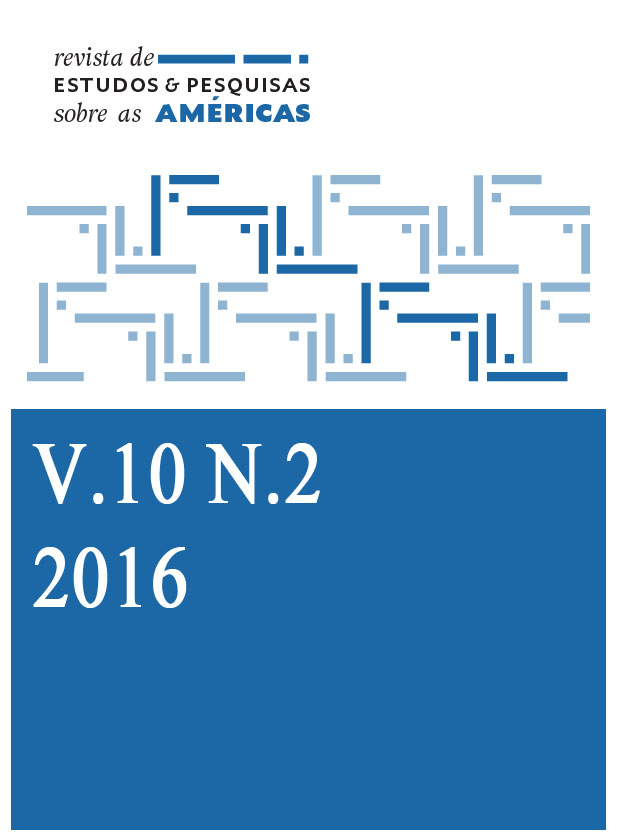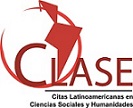Anotações sobre a Intervenção na Guatemala em 1954: uma análise de suas projeções sobre as práticas sistemáticas de violação aos direitos de asilo e refúgio durante a guerra fria.
Resumen
Sumário:
A intervenção dos Estados Unidos na Guatemala, mediante ação encoberta da CIA que resultou na deposição do presidente Jacobo Arbenz em junho de 1954, foi um episódio crucial da guerra fria, cujas projeções ultrapassam sua conjuntura histórica específica. O objetivo do presente artigo é analisar, com base em estudos recentemente publicados, episódios de vigilância e detenção arbitrária de pessoas que buscaram asilo nas representações diplomáticas latino-americanas na cidade da Guatemala em decorrência do golpe de estado de 1954. De modo semelhante, as práticas repressivas adotadas em nível regional contra os asilados guatemaltecos serão examinadas como importante antecedente histórico das violações sistemáticas aos direitos humanos de refugiados políticos que tiveram lugar no contexto latino-americano nas décadas 1960 e 1970.
Palavras-chave: Guatemala, Guerra fria, exílio político, anticomunismo.
Anotaciones sobre la intervención en Guatemala en 1954: un análisis de sus proyecciones sobre las prácticas sistemáticas de violación a los derechos de asilo y refugio durante la guerra fría.
Resumen:
La intervención de los Estados Unidos en Guatemala, mediante la acción encubierta de la CIA que resultó en la deposición del presidente Jacobo Arbenz en junio de 1954, fue un episodio crucial de la guerra fría, cuyas proyecciones trascienden su coyuntura histórica específica. El objetivo del presente artículo es analizar, en base a investigaciones recientes, episodios de vigilancia y detención arbitraria de personas que buscaron asilo en las representaciones diplomáticas latino-americanas en la ciudad de Guatemala como consecuencia del golpe de estado de 1954. De manera semejante, las prácticas represivas adoptadas a nivel regional contra los asilados guatemaltecos serán examinadas como importante antecedente histórico de las violaciones sistemáticas a los derechos humanos de refugiados políticos que tuvieron lugar en el contexto latino-americano en las décadas del 1960 y 1970.
Palabras clave: Guatemala, Guerra fría, exilio político, anticomunismo.
Notes about the Intervention in Guatemala in 1954: an analysis of their projections on the systematic practice of violation of the asylum and refuge rights during the Cold War.
Abstract:
The United States intervention in Guatemala, accomplished through CIA covert operation that resulted in the overthrow of President Jacobo Arbenz in june 1954, was a crucial cold war episode, with projections which go beyond its specific historical juncture. This article´s objective is to analyse recently published research findings on episodes of surveillance and arbitrary detention of persons who seeked asylum in diplomatic missions in Guatemala City in the aftermath of the 1954 coup d´état. In a similar way, repressive practices adopted on the regional level against Guatemalan asylees shall be examined as an important historical precedent for systematic human rights violations of political refugees in Latin America in the 1960´s and 1970´s. Â
Key words: Guatemala, Cold war, political exile, anticommunism.
Descargas
Descargas
Publicado
Cómo citar
Número
Sección
Licencia
La materia publicada es propiedad de la Revista, pudiendo ser reproducida total o parcialmente con indicación de la fuente.
Copyright: Los autores serán responsables de obtener el copyright del material utilizado.
Los autores que publican en esta revista concuerdan con los siguientes términos:
a. Los autores mantienen los derechos de autor y conceden a la revista el derecho de primera publicación, con el trabajo simultáneamente licenciado bajo la Licencia Creative Commons Attribution que permite el compartir el trabajo con reconocimiento de la autoría y publicación inicial en esta revista.
b. Los autores tienen autorización para asumir contratos adicionales por separado, para distribución no exclusiva de la versión del trabajo publicada en esta revista (por ejemplo, publicar en repositorio institucional o como capítulo de libro), con reconocimiento de autoría y publicación inicial en esta revista.
c. Los autores tienen permiso y son estimulados a publicar y distribuir su trabajo en línea (por ejemplo, en repositorios institucionales o en su página personal) a cualquier punto antes o durante el proceso editorial, ya que esto puede generar cambios productivos, así como aumentar el impacto y la cita del trabajo publicado (Vea el efecto del aceso libre)

















